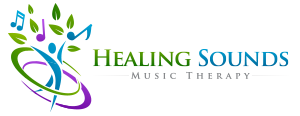Making a Difference
 I do lots of talks and presentations for local organizations/agencies to educate the community about music therapy, and I’m always happy to do it. But it’s physically and logistically impossible for everyone in my community to attend one of my presentations. So hopefully this blogpost will help more people understand what music therapy is– and is not.
I do lots of talks and presentations for local organizations/agencies to educate the community about music therapy, and I’m always happy to do it. But it’s physically and logistically impossible for everyone in my community to attend one of my presentations. So hopefully this blogpost will help more people understand what music therapy is– and is not.
I am not entertainment for your group.
Entertainer: chooses music based on what they want to sing
Music Therapist: chooses music based on the clients’ needs and goals as determined by an evaluation
Entertainer: primary purpose is putting on a good show
Music Therapist: primary purpose is facilitating positive change in the client
Entertainer: might not know anyone in the audience
Music Therapist: has conducted an evaluation, builds a therapeutic relationship, and develops individualized goals for each group member
Music therapy is just cueing up a playlist or putting on a CD, and the music makes everyone feel better.
So have you ever been stuck listening to a radio station or piped in music you disliked? Then you know that not all music makes everyone feel better. Music can sometimes even be harmful. I once had a client who suffered from chronic depression and substance abuse. Because he’d used LSD in his youth while listening to the Beatles’ music, I couldn’t play any Beatles songs for him without sending him into a severe state of drug craving. How did I know that? As part of my music therapy assessment of him, I’d asked about his music likes, dislikes, and specific music associations he had. A well-meaning staff member could have walked by the common room, put in the “Hits of the 1960’s” CD, and set his recovery back several days if not week. Music harmful? Yes.
Why does someone need a music therapist? Everyone knows about music.
This is like saying, “I know how to exercise, so why do I need a physical therapist after my hip surgery/back injury/broken arm?” The physical therapist knows all about body mechanics, muscles, joints, proper movement, etc. And they can indicate which exercises are helpful for recovery and which should be avoided. The average person doesn’t know much, if any, of that information. Likewise, the music therapist knows all about music– creating, composing, changing, improvising, performing, etc. Andthey can indicate what music will be helpful or harmful in your recovery. The average person doesn’t know much, if any, of that information either. That’s why it’s so important to consult with a board certified music therapist!
Music is powerful. In this day and age, we’ve grown accustomed to hearing it everywhere and having access to it whenever we want. I believe that access and availability has diluted its significance for us. When music was only available on certain special occasions, or when only highly trained musicians could provide it– music was revered and honored. It’s become common now, and we don’t give it the respect it deserves. Music can transform lives, and that’s the difference.
So if you’re curious about how music therapy can help you, contact me anytime. I’m always happy to answer questions!





